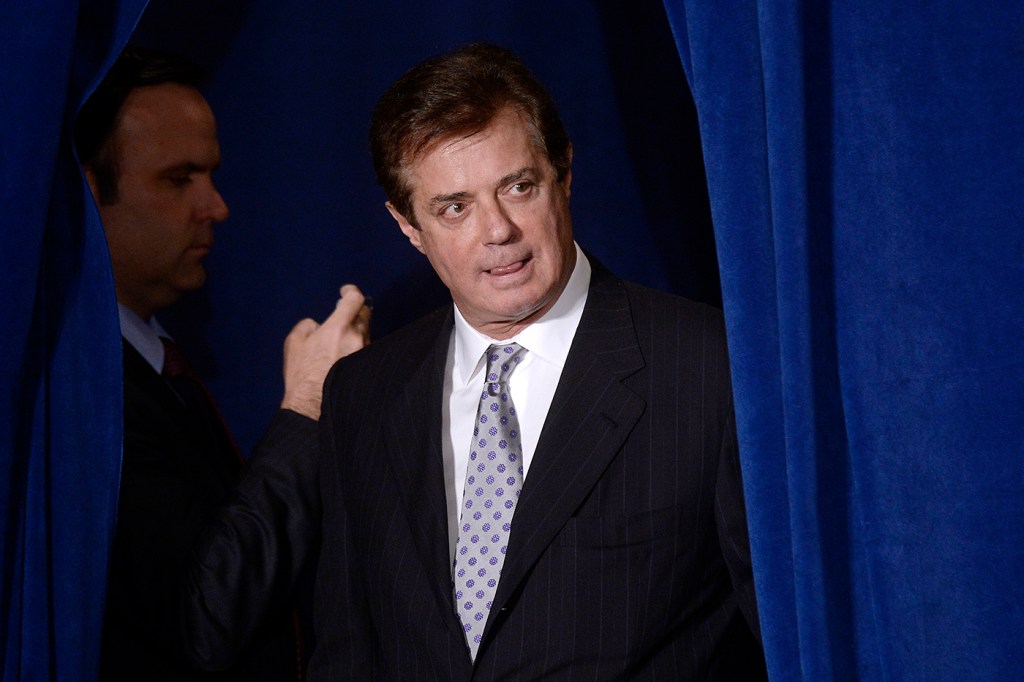First charges in Russia investigation ‘a turning point’

Three former aides to President Donald Trump—including his former campaign chairman, Paul Manafort—have been charged as part of Special Counsel Robert Mueller’s investigation into Russian interference in the 2016 election. These developments mark a “turning point” in the investigation, according to one Northeastern political scientist.
“In many ways, this investigation just got real,” Costas Panagopoulos, professor of political science and an expert on political campaigns, said on Monday.
Manafort and one of his former business associates, Rick Gates, were indicted and pleaded not guilty Monday to numerous federal charges, including conspiracy against the United States, conspiracy to launder money, and acting as an unregistered foreign agent.
In many ways, this investigation just got real.
Costas Panagopoulos
professor of political science
Court documents unsealed Monday revealed that former adviser George Papadopoulos has pleaded guilty to lying to the FBI about his contacts with Russians, particularly a professor with ties to the Russian government promising information on Hillary Clinton, in the form of thousands of emails. Panagopoulos said this might be the development with the more serious political implications for Trump, noting it suggests a possible “tip of the iceberg” moment with regard to potential collusion between the Trump campaign and the Russians.
“It strikes me, given all of the details that have transpired today, that there’s a very real possibility that we may be seeing the house of cards starting to collapse,” Panagopoulos said.
He added: “We may not know very much about where it’s headed, but we do know one thing: that it is not completely devoid of merit and credibility.”
Daniel Medwed, professor of law at Northeastern and an expert in criminal law, said that while the political context of Mueller’s investigation is unique, the approach of rolling out a first wave of indictments fits with how prosecutors might proceed in a complex federal investigation. Medwed expects these indictments to lead to further negotiations with and potential cooperation from Manafort and Gates, and the pivotal question is where that will lead.
“I think it’s important not to interpret today’s developments as the end of the investigation, but the first chapter of what will probably be a pretty long book,” Medwed said. “One thing that is clear is that Mueller and his team are leaving no stone unturned.”
I think it’s important not to interpret today’s developments as the end of the investigation, but the first chapter of what will probably be a pretty long book.”
Daniel Medwed
professor of law
Cooperating witnesses can be tricky for the prosecution, he added, because any information they might divulge in exchange for leniency would ideally need to be independently corroborated.
Manafort’s indictment doesn’t mention Trump, and the president distanced himself Monday from his former campaign chairman, tweeting that the allegations against Manafort happened “years ago” and that there was no collusion between the Trump campaign and Russia. Later in the day, White House Press Secretary Sarah Huckabee Sanders downplayed Papadopoulos’ role in the campaign, calling him a volunteer.
Panagopoulos, however, said that the administration’s attempts to distance itself will be extremely difficult, given Manafort’s senior role in the campaign and the alleged details revealed in the Papadopoulos matter.
Panagopoulos suggested that while the indictments may strengthen the resolve of Trump’s base, these and future developments in the investigation will put congressional Republicans increasingly on the defensive as the 2018 elections loom. If Republican support for Trump on Capitol Hill wanes, it will make it more difficult for the party to generate momentum for its legislative agenda.





